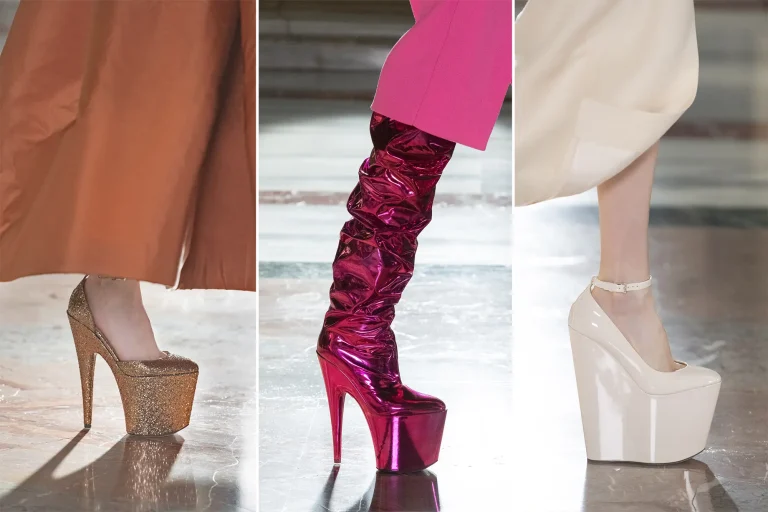Fashion Forward: Turning Your Style Passion into a Professional Pathway
In an ever-evolving industry, the fashion world offers an array of opportunities for those passionate about style. Whether your interest lies in design, marketing, or journalism, transforming your fashion passion into a professional pathway can be a fulfilling journey. Here’s a detailed guide to help you navigate this exciting career.
1. Discover Your Niche
The fashion industry is vast, with multiple segments including design, merchandising, marketing, journalism, and more. Start by identifying your specific interest:
- Fashion Design: Creating original clothing, accessories, or footwear.
- Fashion Merchandising: Focusing on the business side, including buying, selling, and promoting fashion products.
- Fashion Marketing: Building brand strategies and managing advertising campaigns.
- Fashion Journalism: Writing about trends, events, and industry news for magazines, blogs, or other media.
2. Build a Strong Educational Foundation
While passion and creativity are crucial, a formal education can provide you with the technical skills and industry knowledge necessary to succeed. Consider the following options:
- Fashion Design Schools: Institutions like Parsons School of Design, Fashion Institute of Technology (FIT), and Central Saint Martins offer specialized programs.
- Business and Marketing Degrees: These are beneficial for roles in merchandising and marketing.
- Journalism and Communications: Essential for a career in fashion journalism or public relations.
3. Gain Practical Experience
Hands-on experience is invaluable. Look for internships or entry-level positions in your chosen niche. Some ways to gain experience include:
- Internships: Work with established designers, fashion houses, magazines, or marketing firms.
- Volunteer Work: Fashion shows and industry events often seek volunteers.
- Personal Projects: Start a fashion blog, create a design portfolio, or develop marketing campaigns for small brands.
4. Network Actively
Networking is key in the fashion industry. Attend industry events, fashion shows, and exhibitions to meet professionals and make connections. Join fashion associations and participate in relevant online forums and social media groups.
5. Stay Updated with Trends
Fashion is ever-changing. Stay informed about the latest trends, technologies, and industry news by:
- Reading Industry Publications: Vogue, WWD, and The Business of Fashion are excellent sources.
- Following Influencers and Brands: Social media platforms like Instagram and TikTok are great for real-time updates.
- Attending Workshops and Seminars: Learn from experts and gain new insights.
6. Build a Strong Portfolio
Your portfolio is your professional showcase. It should highlight your best work and demonstrate your skills and creativity. Tailor your portfolio to your niche:
- Design: Include sketches, mood boards, and photos of finished products.
- Marketing: Showcase successful campaigns, branding projects, and analytics.
- Journalism: Present published articles, blog posts, and multimedia content.
7. Consider Further Specialization
To stand out, consider specializing further within your niche:
- Sustainable Fashion: With growing environmental concerns, expertise in sustainable practices is increasingly valuable.
- Digital Fashion: Understanding virtual fashion and digital design tools can set you apart.
- Luxury Fashion: Specialized knowledge in luxury branding and merchandising can lead to prestigious roles.
8. Pursue Continuous Learning
The fashion industry is dynamic. Continue learning through courses, certifications, and workshops. Platforms like Coursera, Udemy, and LinkedIn Learning offer courses on fashion design, digital marketing, and more.
9. Develop Soft Skills
In addition to technical skills, soft skills are crucial:
- Creativity and Innovation: Essential for design and marketing roles.
- Communication: Important for journalism, PR, and team collaboration.
- Adaptability: Ability to quickly adapt to industry changes.
- Business Acumen: Understanding the financial and business aspects of the industry.
10. Embrace Entrepreneurship
Consider starting your own brand or consultancy. This path requires a strong business plan, market research, and financial investment but can be incredibly rewarding.
Conclusion
Turning your passion for fashion into a professional pathway involves dedication, continuous learning, and strategic networking. By following these steps and staying true to your unique style and vision, you can carve out a successful and fulfilling career in the fashion industry. Whether you dream of designing the next iconic collection, leading a marketing campaign, or writing for top fashion magazines, the possibilities are endless. Embrace your passion, stay persistent, and keep moving fashion forward.
Stay in touch to get more updates & news on Stylecarter!






